Locker Room: Sharks CEO Dino Mezzatesta reveals how NRL clubs handle a crisis in wake of Braydon Trindall charges
This is the behind the curtains look of how NRL clubs handle crises, where with one phone call brands are tarnished and careers shattered, writes DAVID RICCIO.
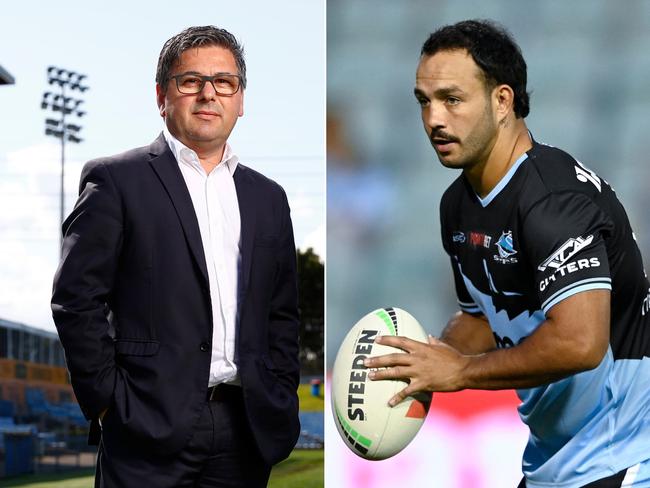
NRL
Don't miss out on the headlines from NRL. Followed categories will be added to My News.
When Sharks CEO Dino Mezzatesta’s phone rang just after 10.30am last Monday, he took a deep breath before immediately drawing on his experience in a crisis.
Before leading the Cronulla football club, Mezzatesta spent 16-years with Qantas as a high-ranking manager of Australasia, 10-years as a senior executive of Accor Hotels and two years as the Chief Operating Officer of Sydney’s The Star casino.
In each of those high-pressure positions, he dealt with the most extreme scenarios and deepest level of crisis.
From plane hijack and bomb threats to organising the mass evacuation of an entire airport to dealing with the 24-hour demands of one of Australia’s biggest casinos.
So when Mezzatesta was informed that Cronulla player Braydon Trindall had been charged with drink-driving, tested positive to an illicit substance, with a suspended licence last Monday, the Sharks CEO went into the mode that every NRL club CEO dreads, but must be prepared for.
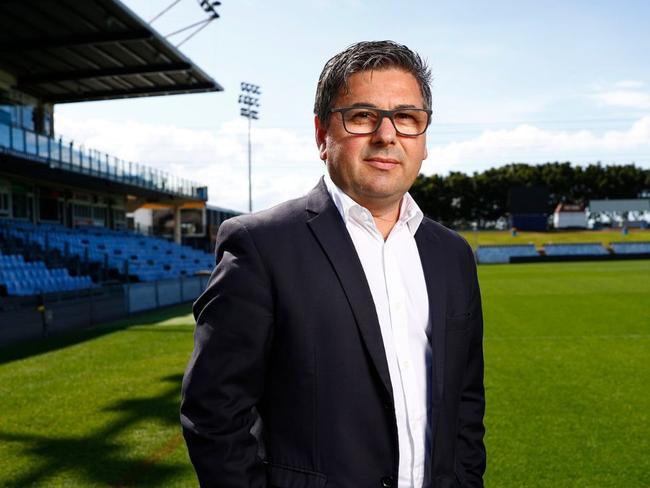
“I have always said that you don’t want to be good at managing crises because if that’s what you’re doing all the time you’re in the wrong business, but my word you have to have experience to handle it,” Mezzatesta said.
“Straight away we (Sharks management) went into process and crisis management immediately. I immediately informed our chairman Steve Mace of the matter and our process, which included ensuring the best welfare of our player.
“If you’re inexperienced, that’s when you lose control of the situation.
“It’s all about the facts, the details and then the actions thereafter.
“You need the facts. Not throwaway lines, here say or rumour.
“The worst thing you can do is make decisions based on innuendo or falsities. You’ll never get through it. You will fumble your way through it, and then make the wrong decision.
“The ones that are better organised and have a plan will get to the recovery phase very quickly.”
This is the behind the scenes impact on every NRL club when a footballer has gone rogue, that either the player doesn’t care to consider, or have the level of understanding to comprehend the damage their actions cause.
It is the anatomy of a crisis, where with one phone call, days and weeks are consumed by cleaning-up the mess, where millions of dollars in sponsorship can be lost, where brands are tarnished and careers shattered.
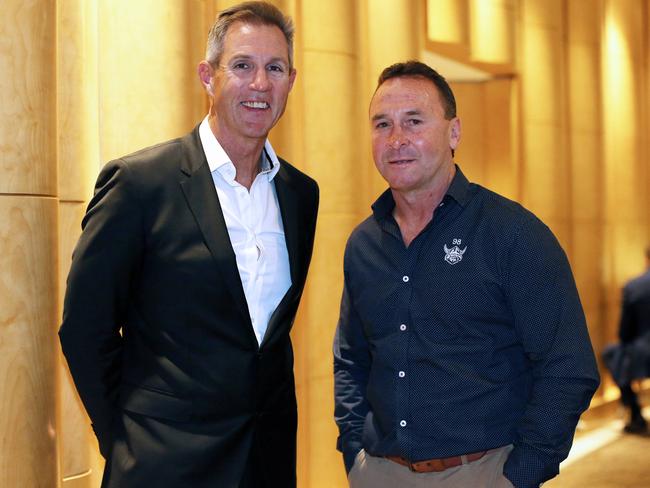
THE PHONE CALL
Raiders chief Don Furner is the longest-serving club CEO in the NRL with over 20-years in charge.
“I’ve had my family holiday ruined by a phone call. I remember telling our coach (Ricky Stuart) of a major issue with a player when he was in Hamilton Island trying to spend time with his family,” Furner explains.
“When the call comes, you know that the rest of your week is ruined.
“It’s time consuming, it’s draining and you find yourself balancing up the fact that yes, they are young men who make mistakes, but they are also young men, who can’t afford to make mistakes, which is made even more frustrating by how much they’ve been counselled against it.
“My first call is tell the board and the head coach.
“From there, it’s about keeping your phone charged because you’re never off your phone talking to your stakeholders and organising every next step.
“Particularly if you have to go to court, you have to get a solicitor, then there’s reports you have to write to the NRL.”
THE NRL
Alongside his crisis team, Mezzatesta spent the majority of Monday working with the NRL’s Head of Integrity Unit Jason King, making sure that the governing body were across the details of Trindall’s incident and crucially the club’s next steps.
Furner shed light on how he has interacted with the NRL in the past.
“Very rarely, if ever, have I needed to go straight to Andrew (Abdo),” Furner said.
“Its normally the integrity unit head, previously Nick Weekes or Karen Murphy and now Jason King.
“They ask a for a full report and if it’s a police matter, they get all the information from the police.”
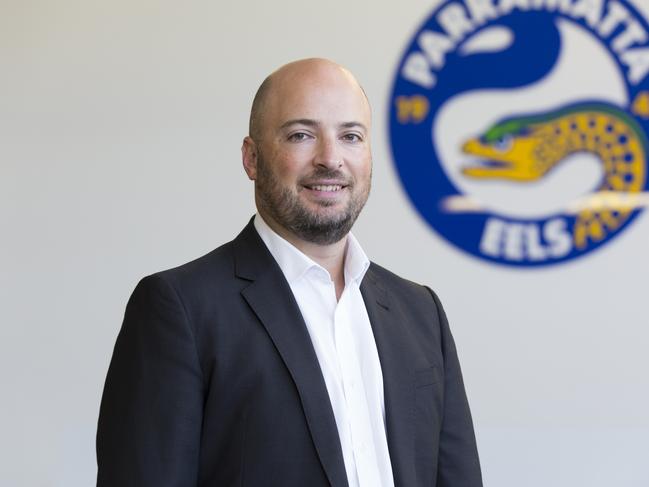
SPONSORS
Prior to joining the Parramatta board, where he spent three years, before becoming Eels CEO in 2019, Jim Sarantinos was a business and financial adviser for companies about go belly-up.
In short, he was the man that walked in to fix a crisis.
When confronted by an off-field issue in the past at the Eels, he explains that one of his early objectives is to get to those who matter most, which is the club’s stakeholders and corporate partners.
“What you don’t want to have is for your major sponsors to be finding out the details through the media,‘’ Sarantinos said.
“You can’t always control that, but you have to get on the front foot with the major stakeholders of your club.
“They deserve the respect to be personally contacted.‘’
Asked if has ever had to convince a sponsor not to walk away as a result of an off-field matter, Sarantinos said: “No, however it’s not unusual to have something in a contract where if either party brings the other party into disrepute, you have a right to terminate them.
“The key for us though is, you need to have time to remedy things.
“Remedying doesn’t mean you have completely solved things, but it might be the action that the club takes, like sanctions, or the engagement that the club has with the partners that satisfies that.
“It’s also important to note that if we do act, we’re not acting because we’re trying to preserve a sponsorship. We’re doing it because it’s the right thing to do.‘’
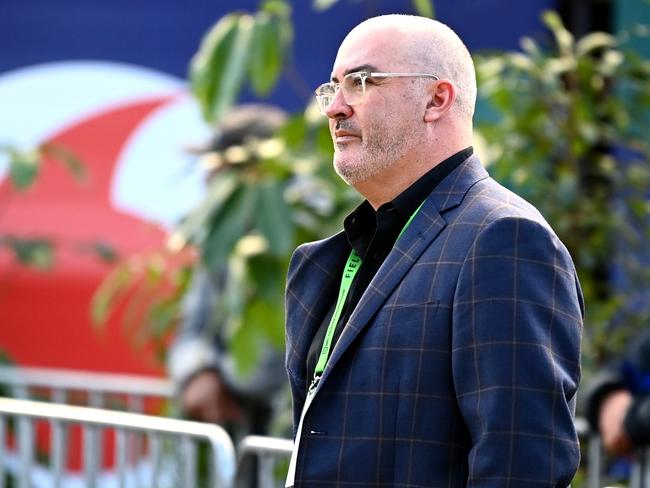
OWN IT
Warriors CEO Cameron George’s resume is layered with experience in handling a crisis.
He was the head of integrity for New Zealand racing across all three codes between 2006 and 2013 before becoming the CEO of Auckland Racing Club.
In September 2021, superstar Reece Walsh was caught in possession of cocaine, while contracted to the Warriors.
“I got a phone call at 6am in the morning, I saw Reece at 9am and we had our own press conference at 4pm that afternoon,‘’ George said.
“We fronted it and came clean. We didn’t try and dodge it.
“We did a Zoom call with our sponsors beforehand. We fronted them and then went public with the press conference.
“I wanted us to own it, by getting out there and getting it over and done with.
“My learnings from that are, the sooner you can get ownership of it, by speaking to your sponsors and then your fans and members, the better.‘’
“I hate it when situations drag out in the press. Nine times out of 10 that’s because you’re trying not to be up front.‘’
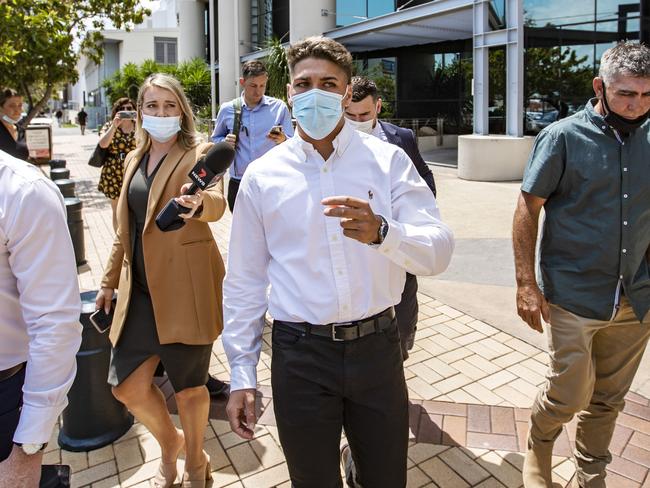
HONESTY
Mezzatesta, Furner, Sarantinos and George said the player’s honesty was paramount to handling the crisis.
Through my experience in racing, crisis management and dealing with people when investigating, I saw what being truthful and honest about their actions did,” George said.
“My mindset was far more lenient than when someone was sitting in front of you trying to hide stuff.
“The time wasting, the reputational damage, the ongoing media coverage as a result of someone not telling the truth, causes immeasurable damage.
“In hindsight, I reckon Reece will say it’s one of his biggest learnings.
“Be honest, be up front, be transparent and take ownership. I think he would say that is a really important part of the process of moving on.”
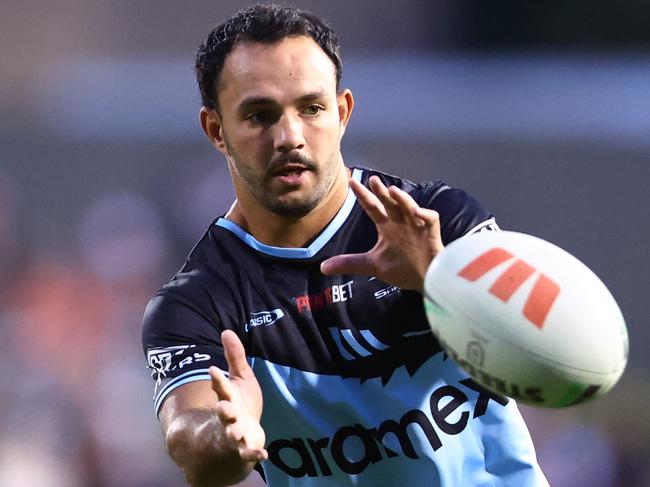
IMPACT ON THE FIELD
Almost always, a player’s off-field indiscretion ultimately impacts the football department and the team.
“The biggest investment that any club makes is in its football program,” Sarantinos said.
“If you’re financials are impacted due to things that have happened off-field, the biggest slice of the pie that is likely to be impacted is your football program.”
However, Sharks captain Cameron McInnes used this mature analogy to explain why he felt the Cronulla playing group had a role to play in both Trindall’s downfall and his recovery from his current crisis.
“It’s disappointing for him, and its disappointing for all of us. As a club, it’s not what we’re about and we’re working hard to be good men and role models in the community,” McInnes said.
“Not only has Braydon fallen short, but we as a club and players around him.
“He’s our teammate and he’s made a mistake and a costly one, but his wellbeing is important.
“We need to get back to being an example for this great community and the game.
“Like on the field, if someone makes an error, it affects everyone.
“In a team, you can control to a degree what a teammate does in terms of their actions, we all have a part to play, things happen and you’re not always in control are you? But that’s our mindset as a team.
“If one of us slips up, there’s always something big or small we could’ve done, and unfortunately that wasn’t the case the other night.
“He’s a part of us and all of our actions reflect on each other.”
More Coverage
Originally published as Locker Room: Sharks CEO Dino Mezzatesta reveals how NRL clubs handle a crisis in wake of Braydon Trindall charges





